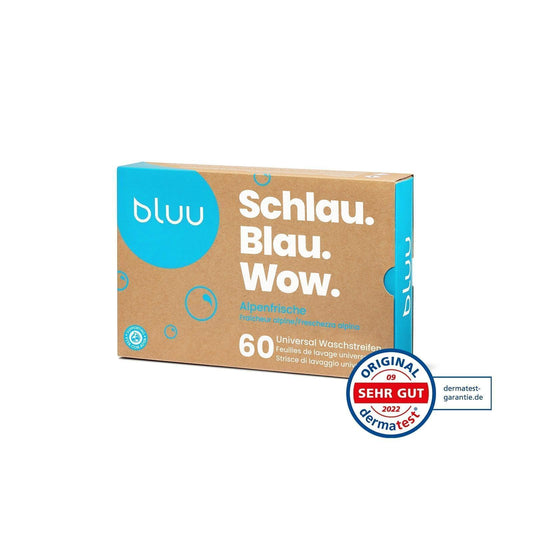The Swiss doctor and philosopher Paracelsus already knew in the 16th century that influences in high doses damage the body. This can be related to many situations in life, such as washing. With conventional liquid or powder detergents, you pour approx. 50 - 75 ml into the drum per wash cycle. That makes about 8 liters of detergent per person per year, or if you like big numbers: about 70 million liters of detergent in Switzerland, which ends up in the waste water.
That's a lot, and above all a lot too much, because conventional detergents are generally overdosed. Who doesn't know it: "How much was that again? It's best to empty a little more, so that the laundry is sure to be clean and smell good". In most cases this would not be necessary. If there is too much detergent, it may well be that the laundry cannot be washed out completely, which can lead to allergies or skin irritation, especially for people with sensitive skin.
What should I watch out for now? In addition to biodegradability, which is the top priority, the quantity is the second big lever. This is where ultra-concentrated detergents come into play, which are many times lighter than conventional detergents. In addition to the amount in the waste water, this also results in a massively better CO2 footprint during transport.
Our bluu washing strips are ultra-concentrated, weigh only 3g and are therefore around 20 times lighter than conventional liquid detergents. Less detergent in the washing machine also means less detergent in the waste water. The washing strips are already pre-dosed - unintentional overdosing is therefore no longer possible.
Pretty wow, right?




